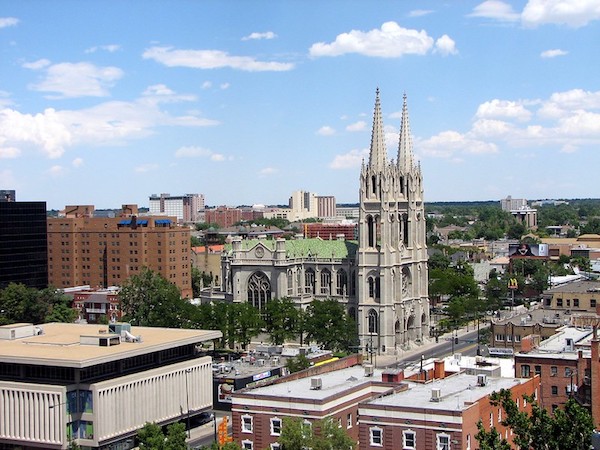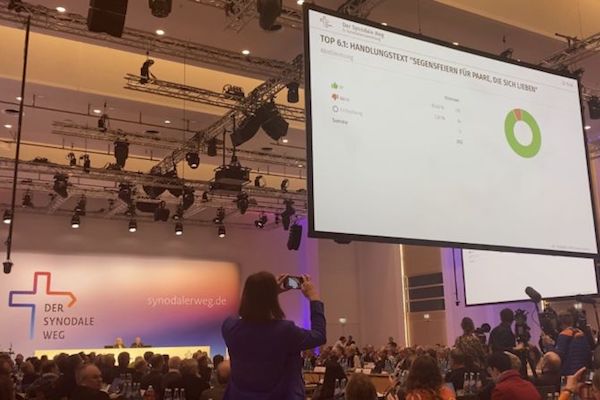Same-sex couples and remarried divorcees will be able to have church blessings in the German Church, following a decision by its Synodal Path.
At its fifth and final meeting in Frankfurt from 9-11 March, the initiative for church reform decided by a large majority in favour of allowing the blessings. More than eight in ten, 81 per cent, of the German bishops voted for the measure.
Conference president Bishop Georg Bätzing said the decision was “a great relief”. The German Church had taken a “huge step forward” in the ongoing synodal learning process.
“This shows that the Church is capable of change and it is changing,” he said.
Blessing ceremonies for same-sex couples and remarried divorcees had already for some time been celebrated in the Archdiocese of Munich, Cardinal Reinhard Marx of Munich and Freising told Bavarian Radio.
The fact that they had taken place had always been “a little below the limit of what is allowed. But now we can do so publicly and can make it quite clear that the couples who want a blessing are most welcome,” he said.
The Frankfurt assembly also voted in favour of allowing women and men who had not been ordained to deliver the homily at Mass.
The proposal to establish a “synodal council” in which bishops and lay persons would share in decision-making was, however, postponed for three years. This was the issue that had alarmed the Vatican as it would have meant that bishops give up part of their powers.
In a letter specifically approved by Pope Francis in January, the Vatican informed the German synodal path initiative that it did not have the competence to establish a nationwide permanent “synodal council”.
At the German bishops’ conference’s plenary (27 February to 2 March), the apostolic nuncio to Germany, Archbishop Nikola Eterovic, told the German bishops that he had been officially commissioned to explain in detail why the Vatican could not allow such a council.
The initiative has now set up a 74-member “synodal committee” consisting of Germany’s 27 bishops and archbishops, 27 members of the Central Committee of German Catholics (ZdK) and 20 members elected according to the majority principle.
This committee will continue to discuss plans for the establishment of a “synodal council” for the next three years.
When the establishment of a “synodal council” was under discussion, five diocesan bishops wrote to the Vatican to ask whether they as bishops could become members of a “synodal council”. The Vatican replied that they could provided the “council” only claimed advisory and not binding powers.



 Loading ...
Loading ...